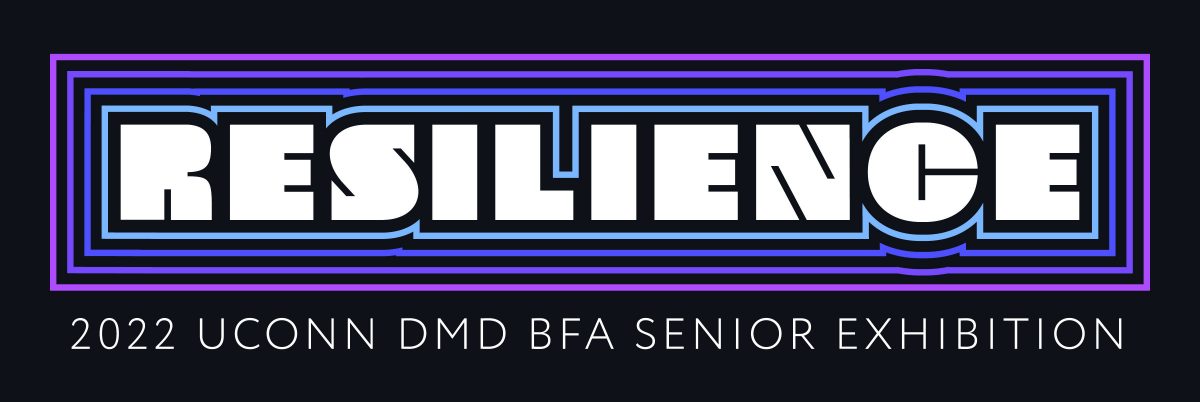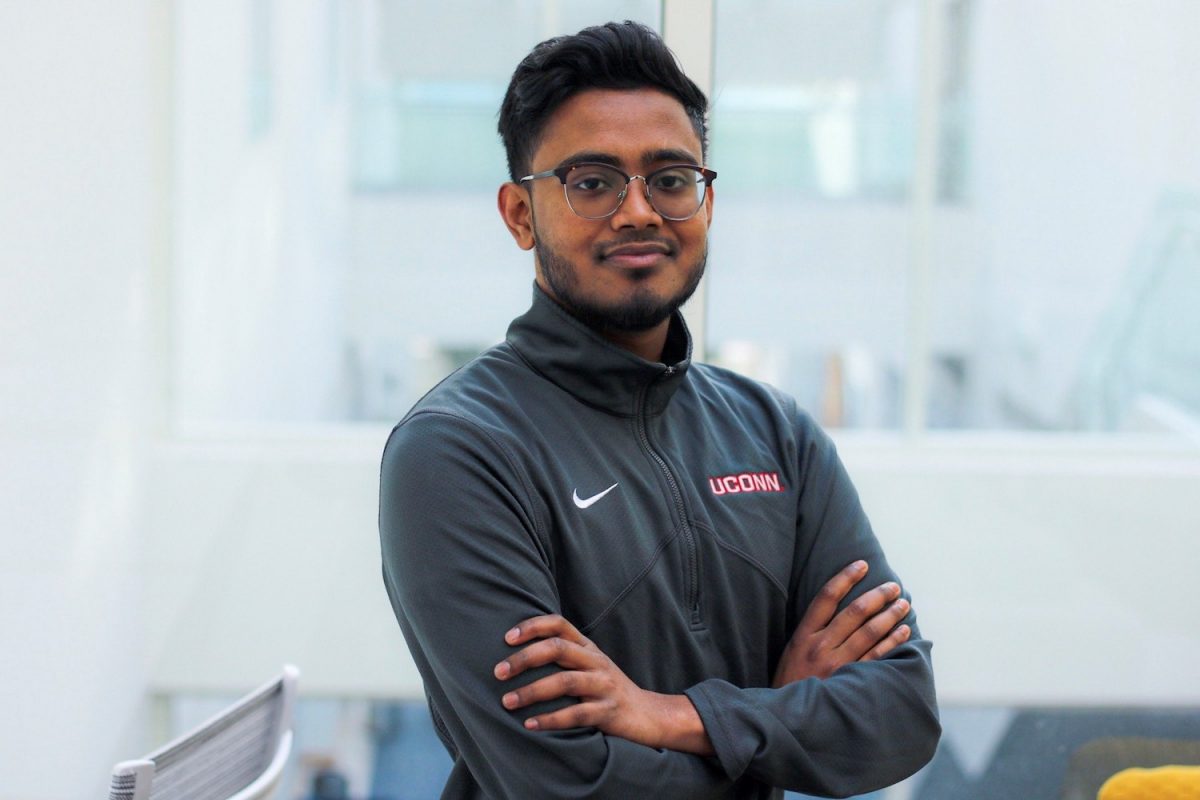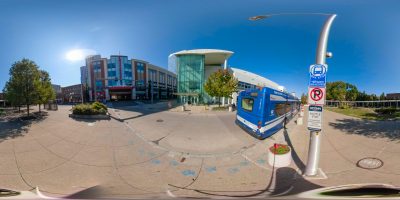
Resilience: 2022 UConn Digital Media & Design B.F.A. Senior Exhibition
STORRS, CT – The UConn Digital Media & Design Department is excited to announce the 2022 DMD BFA Senior Exhibition, Resilience. After two years of virtual exhibitions due to the COVID-19 pandemic, we are thrilled to hold an in-person exhibition which is open from April 2 to April 29, 2022 in the Jorgensen Gallery at UConn’s Jorgensen Center for the Performing Arts, with an opening reception on Friday, April 1 from 5 p.m. to 8 p.m. EDT. Regular gallery hours are Monday-Friday 10:00 a.m. to 4:00 p.m., and prior to performances and during most intermissions. All events are free and open to the public.
Resilience features the work of 25 senior UConn DMD Bachelor of Fine Arts students from both the Storrs and Stamford campuses. Exhibited artworks range from 2D and 3D animations to narrative and documentary films, digital publications, interactive websites, and games. The title Resilience reflects the challenges and experiences of the exhibiting artists’ senior year during the transition from distance learning to in person. For many of them, this tumultuous year not only strengthened the extent of their creative process, but also brought forth new and meaningful ideas through their work. To learn more about the exhibition, visit: http://dmd.uconn.edu/bfashow.
Exhibiting artists:
Ben Anderson (Stonington, Conn.), Evergreen, 3D animation
Brenna Ashby (Hopedale, Mass.), Evolution, 3D animation
Natalie Curtis (Lebanon, Conn.), The Stolen Child: Animating Poetry, 2D animation
Megan Du Plessis (South Windsor, Conn.), Invisible Ties Oceans Apart, short documentary film
Quinn Erno (East Lyme, Conn.), Rise: Mountain Bike Documentary, short film
Arianna Gomes (Bridgeport, Conn.), Graphicsbyari Brand Suite, website
Colleen Green (Stamford, Conn.), ReadR, website
Paula Guerrero (Stamford, Conn.), Gatcha!, 2D animation
Eric Laputka (Bridgewater, N.J.), Pizza Time, 3D video game
Jon Larsen (Stratford, Conn.), Paint Knight, 2D video game
Samir Lee (New Haven, Conn.), Esc, VR experience
Matthew Luxeder (Prospect, Conn.), American Boy, short documentary film
Nicole Mata (Tolland, Conn.), How to Conserve Bread, 2D animation
EJ McCabe (Bridgewater, Mass.), Cats vs Robots, 2D animation/short film
Sofia Messerrly (Port Chester, N.Y.), Enter: Net, 2D animation/music video
Jaret Ostop (Madison, Conn.), Illusions and Witchcraft, 2D animation
Davis Peng (Old Greenwich, Conn.), Witch of the Forest, 2D animation
Lauren Platt (Skillman, N.J.), Starry-eyed, 3D animation
Kevin Rodican (Yonkers, N.Y.), Scholarship, short film/music video
Heather Rutishauser (Monroe, N.Y.), Floating to Freedom, short documentary film
Emmanuel Sainville (Stratford, Conn.), L’Union Fait La Focus, 2D & 3D animation
Meira Tompkins (Dunstable, Mass.), Internship, website
Cara Tracey (Darien, Conn.), PeakBag, mobile app
Miles Waterbury (Clinton, Conn.), Nutz, 3D animation
Chaofan Yu (Jinan, China), Vista, mobile app
The University of Connecticut’s Department of Digital Media & Design creates future leaders in entertainment, design, business, and communications. Students can study animation, film/video production, game design, web/interactive media design, digital media business strategies, and digital humanities. Our commitment to experiential learning prepares our students to respond to real-world challenges, and we encourage students to find and express their voice, building from their unique background and perspective. We acknowledge that a diversity of thought and expression is needed in today’s society and see great promise in our DMD students’ abilities to make a difference in the world as future digital media content creators, distributors, and analyzers.
The University of Connecticut’s School of Fine Arts balances artistic and cultural legacies with the innovative approaches and techniques of contemporary art. In doing so, the School of Fine Arts serves students at UConn in both their educational and their professional development. The outstanding faculty from the four academic departments (Art & Art History, Digital Media & Design, Dramatic Arts, and Music) are committed to providing rigorous professional education and all offer undergraduate and graduate degrees. The academic programs are supported by specialized and uniquely focused showcases, stages, exhibition spaces and forums which include the Jorgensen Center for the Performing Arts, The Ballard Institute and Museum of Puppetry, The William Benton Museum of Art, Contemporary Art Galleries, Connecticut Repertory Theatre, and von der Mehden Recital Hall.
###
If you would like more information about the 2022 BFA Exhibition, email Stacy Webb at digitalmedia@uconn.edu.
Download a .pdf of this press release.

